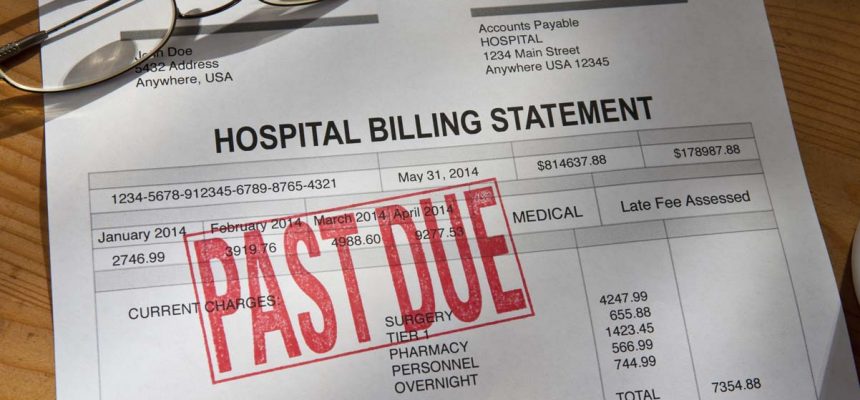Medical Debt Hurts Consumers’ Credit, Ability To Buy, Rent Homes
By Consumers For Quality Care, on October 16, 2019

As the price of health insurance premiums and deductibles, as well as the frequency of issues like surprise bills, continue to increase, consumers are dealing with the fall-out of high medical costs. Consumers for Quality Care often highlights personal experiences with these issues. Now, BizWomen is highlighting a number of studies that reflect the overarching ways in which medical debt is impacting consumers’ finances and future.
According to a recent study in the Journal of General Internal Medicine, roughly 137.1 million adult Americans reported facing medical financial hardships in the last year. Consumers for Quality Care has previously highlighted that medical debt is now the leading cause of bankruptcy in the country.
Even when medical debt does not send a consumer into bankruptcy, it can hold them back from hitting other milestones. A recent Zillow survey, reported by Bloomberg, found that nearly 40 percent of Americans who have medical debt have been denied a mortgage or lease. Potential millennial buyers are especially impacted, with one in five having medical and student loan debt. The denial rate associated with medical debt is higher than other kinds of debt, according to the report.
According to The Atlantic, around 43 million Americans have medical debt that is affecting their credit scores and over half of overdue debt can be attributed to medical services. Most consumers who receive surprise or unexpected medical bills don’t have enough savings to cover the bills.
As these expenses pile up, many consumers are skipping care. The fear of these costs is even keeping consumers from receiving care they believe they need.
“Even in economic good times, a meaningful percentage of Americans are not going to the doctor or getting their needed medications. In the past, we called these ‘measures of economic crisis,’” Chris Karpowitz, principal investigator of The American Family Survey and co-director of the Center for the Study of Elections and Democracy at Brigham Young University, told Next Avenue.
The cost of care, and the repercussions those costs have, are clearly weighing on consumers. Ninety-one percent of consumers report that they want to better understand the costs associated with their care and 88 percent say lowering these costs should be a top priority for lawmakers, according to research from Consumers for Quality Care and Ipsos. As 2020 approaches, Consumers for Quality Care has provided candidates with the “Cut Consumer Costs Guide” to highlight which changes they want from their health care.




